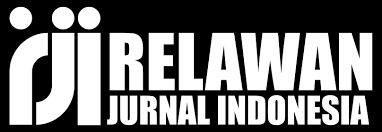DINAMIKA INVESTASI SYARIAH DALAM PASAR MODAL GLOBAL: KAJIAN AKUNTANSI DAN KEUANGAN
DOI:
https://doi.org/10.61722/jiem.v2i5.1210Abstract
This research aims to provide a more comprehensive view of the development of the Islamic capital market. Through a deep understanding of these dynamics, strategic steps can be taken to overcome problems and take advantage of opportunities so that the Islamic capital market can continue to develop and make a positive contribution to the Islamic economy globally. The method used in this research is descriptive qualitative, namely by using a library research type approach. The type of data used in this research is secondary data. Islamic investment is a global phenomenon that continues to grow, but is still faced with a number of challenges that need to be overcome to build a stronger and more sustainable Islamic capital market. But it is still faced with challenges such as a lack of standardization, transparency, risk management and consistent regulations. Investors' confidence in the sharia market has a significant influence on their performance, with sharia investors tending to be more careful and conservative in investing. Sharia investment principles are different from conventional investments, with certain provisions that must be adhered to, such as the prohibition of usury, gharar and maysir. As well as facing the risk of gharar and jahalah as an essential component. This research provides an important contribution to the understanding of the dynamics of Islamic investments in global capital markets, which can be used by investors, regulators and other stakeholders to make more informed investment decisions. The implication is that it can increase the visibility of the sharia capital market; Synergy with global sustainable finance initiatives; Development of an inclusive and sustainable ecosystem; Challenges and opportunities; and The influence of advances in technology and knowledge.
References
Alam, N., & Rajha, K. S. (2017). Shariah governance, expertise and corporate social responsibility of Islamic banks. Journal of Financial Reporting and Accounting.
Atikah, N., & Sayudin, S. (2024). Analisis Perkembangan Pasar Modal Syariah: Tantangan Dan Peluang Dalam Investasi Berbasis Prinsip Syariah. Jurnal Inovasi Global, 2(1), 204–213. https://doi.org/10.58344/jig.v2i1.54
Azwar. (2014). Pengaruh Penerbitan Sukuk Negara Sebagai Pembiayaan Defisit Fiskal dan Kondisi Ekonomi Makro Terhadap Perkembangan Perbankan Syariah Di Indonesia. Jurnal Of Info Artha Sekolah Tinggi Akuntansi Negara (Stan), Ii(xii).
El-Gamal, M. (2006). Islamic Finance: Law, Economics, and Practice. Cambridge University Press.
Eny Latifah, Masyhuri, Palveni, R. W., Mulyani, S., Hasanah, N., Fidinana, Zunaidi, A., Nurjanah, Yulianti, M. L., Yunus, A. R., & Fauzi, A. (2022). Manajemen Keuangan Syariah (Sebuah Konsep dan Teori). In Paper Knowledge . Toward a Media History of Documents (Vol. 135, Issue 4).
Ferdiansyah, S. T. A. (2016). Globalisasi Ekonomi, Integrasi Ekonomi Global, Dinamika Pasar Modal & Kebutuhan Standar Akuntansi Internasional Ferdiansyah Se Tin Anthonius. Jurnal Akuntansi, 8(1), 119–130.
Firmanzah. (2013). Integrasi Ekonomi Global. Koran Sindo.
Harahap, N., Salwa, F., Astiza, I. D., & Oktaviani, T. (2023). Peran Pembangunan Ekonomi Indonesia dengan Tantangan Transformasi Digital Dalam Perspektif Islam. JIKEM : Jurnal Ilmu Komputer Ekonomi Dan Manajemen, 2(36110–6119).
Haron, S., & Nursofiza Wan Azmi, W. (2008). Determinants of Islamic and conventional deposits in the Malaysian banking system. Managerial Finance, 34(9), 618–643. https://doi.org/10.1108/03074350810890976
Hassan, M. K., & Lewis, M. (2007). Handbook of Islamic Banking. Edward Elgar Publishing.
Iqbal, Z., & Mirakhor, A. (2011). An introduction to Islamic finance: Theory and practice. John Wiley & Sons.
Karim, D., & Zainal Abidin, N. A. (2015). Factors affecting the demand for Islamic banking products: Empirical evidence from Malaysia. Journal of Islamic Economics, Banking and Finance, 29-52.
Kurnia, E., Parmitasari, R. D. A., & Abdullah, M. W. (2023). Tinjauan Mendalam Terhadap Dinamika Lembaga Keuangan Syariah: Masa Depan, Tantangan, Dan Inovasi. Jurnal Ekonomi, Manajemen Dan Akuntansi Sekolah Tinggi Ilmu Ekonomi Enam-Enam Kendari, 1(5), 292–303.
Maruta, H. (2020). Dinamika Pasar Modal Syariah, Perdagangan Indeks Saham Gabungan Syariah Dan Pasar Uang Syariah (PUAS). Jurnal Pasar Modal Dan Bisnis, 1(1), 806–823.
Meddour, H., Rosli, M. A. B. M., Majid, A. H. A., Auf, M. A. A., & Aman, A. M. (2016). Intention to leave manufacturing organisation: A study of the automotive Industry in Malaysia. International Journal of Economic Perspectives, 10(4), 484–499.
Muchlis, S., M, M., & Mais, R. G. (2022). Analisis Dampak Instrumen Investasi Keuangan Syariah Sebagai Determinan Pertumbuhan Ekonomi Nasional. Jurnal Penelitian Teori & Terapan Akuntansi (PETA), 7(2), 241–260. https://doi.org/10.51289/peta.v7i2.529
Norrahman, R. A. (2023). Peran Fintech Dalam Transformasi Sektor Keuangan Syariah. JIBEMA: Jurnal Ilmu Bisnis, Ekonomi, Manajemen, Dan Akuntansi, 2(1), 101–126.
Raya Telang, J., Telang Indah, P., Kamal, K., Bangkalan, K., & Timur, J. (2023). Pengaruh Pengetahuan Terhadap Minat Berinvestasi di Pasar Modal Syariah. Journal of Creative Student Research (JCSR), 1(4), 103–121.
Saleem, M., Fakhfekh, M., & Haschicha, N. (2016). Sukuk Issuance and Economic Growth: The Malaysian Case. Journal of Islamic Economics, Banking and Finance, 2(12).
Supriadi, I., Maghfiroh, R. U., & Permatasari, O. (2023). Meningkatkan Ekonomi Berkeadilan: Solusi Pasar Modal Syariah di Indonesia: Increasing an Equitable Economy: Indonesia’s Sharia Capital Market Solutions. Journal of Islamic Economics and Philanthropy, 6(1), 1–19.
Syaifullah, M., Fachrurazi, Achmad, F., Usman, S. A., & Wahyuni, R. (2019). Management Strategy, Islamic Investment, Student Interest. Jurnal Ekonomi, Keuangan, Dan Perbangkan Syariah, 3, 108–127.
Tandelilin, E. (2017). Pasar modal manajemen portofolio & investasi. Yogyakarta: PT Kanisius.
Warde, I. (2000). Islamic finance in the global economy. Edinburgh University Press.
Wilson, R. (2012). regulatory and governance issues in Islamic finance. Edinburgh University Press.
Yuliana, R. (2019). Topik Penelitian Terkini Seputar Pasar Modal Syariah. InFestasi, 15(1), 83. https://doi.org/10.21107/infestasi.v15i1.5486
Zulkafli, A. H., & Samad, F. A. (2016). Corporate governance and performance of Islamic banks. The International Journal of Business in Society.
Downloads
Published
Issue
Section
License
Copyright (c) 2024 JURNAL ILMIAH EKONOMI DAN MANAJEMEN

This work is licensed under a Creative Commons Attribution-ShareAlike 4.0 International License.












